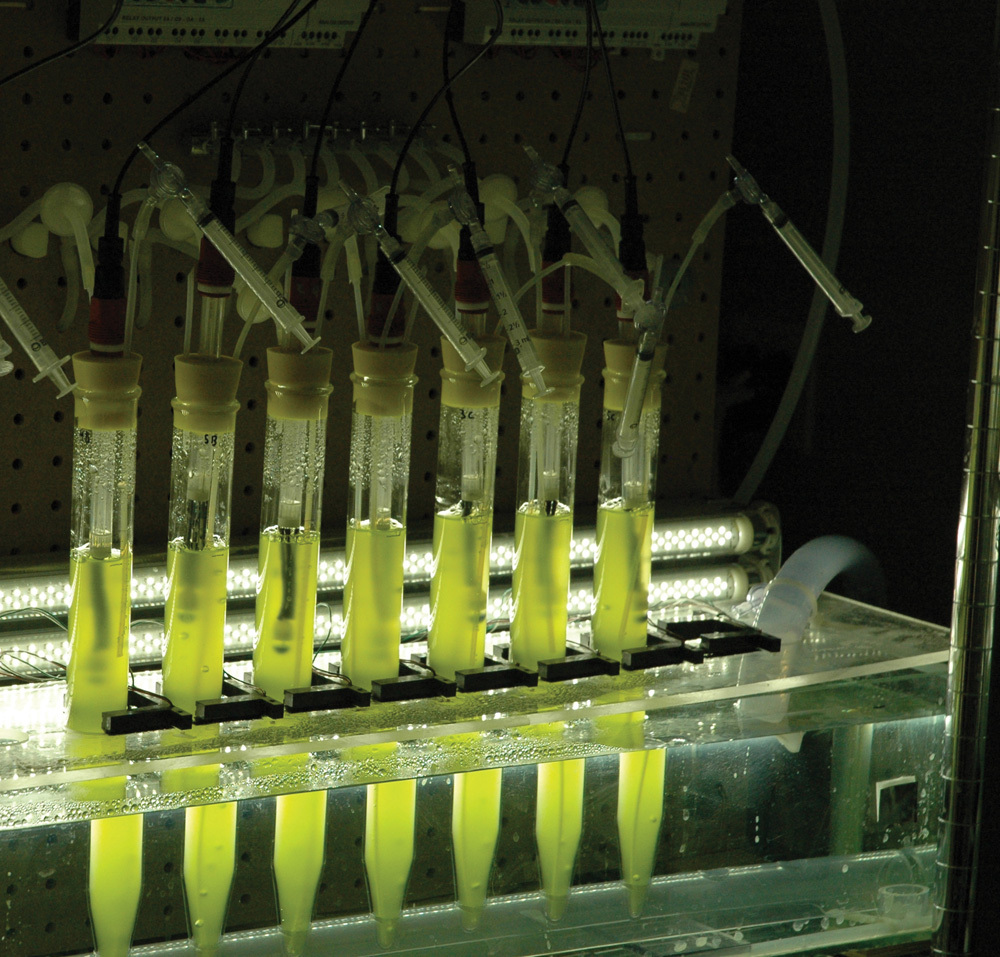The (Bad) Case for Algae?

September 8, 2011
BY Luke Geiver
It might be a cliché, but the old saying “it takes money to make money” still applies to algae—sort of. A research team from the University of Virginia has completed a study, “Environmental Impacts of Algae-Derived Biodiesel and Bioelectricity for Transportation,” which indicates that although algae-based biodiesel may be more energy intense than a canola or switchgrass alternative, the end result of using algae-based energy will always be linked to the idea that it takes petroleum to make petroleum energy replacements. Unfortunately, that link, as the study shows, means that algae can have a greater negative impact on the environment because of the petroleum required to turn algae cultures into algae fuels. “This suggests,” the study states, “that both cultivation and conversion processes must be carefully considered to ensure the environmental viability of algae-to-energy processes.”
One of the researchers who worked on the study, Lisa Colosi, assistant professor of civil and environmental engineering at the university, might have put the entire study into the best perspective possible. Colosi says that it all comes down to “value-driven questions.” As she puts it, “Do we value driving long distances in SUVs that require a lot of fuel? If so, we need to look at algae so we can produce as much fuel as possible.”
Advertisement
Advertisement
—Luke Geiver
Advertisement
Advertisement
Upcoming Events





